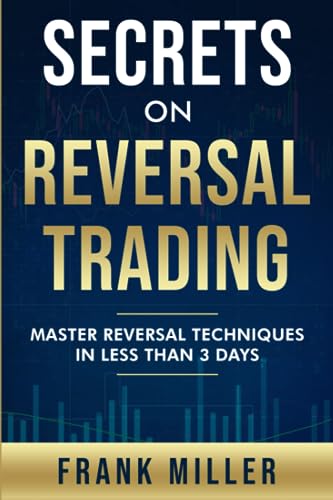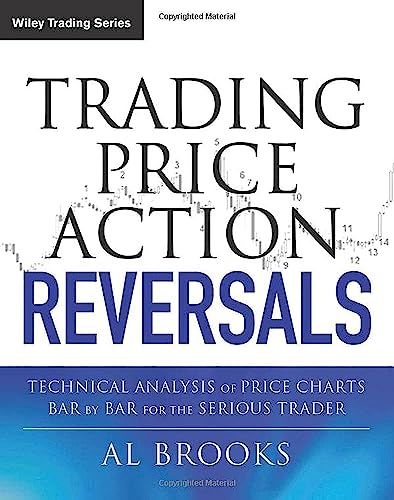- Miller, Frank (Author)
- English (Publication Language)
- 92 Pages - 11/01/2020 (Publication Date) - Independently published (Publisher)
Introduction
Reversal trading is a powerful strategy that can unlock significant profit potential in the financial markets. By identifying key reversal patterns, traders can capitalize on market shifts and generate substantial returns. In this article, we will explore the concept of reversal trading and how it can be leveraged to maximize profits.
Understanding Reversal Trading
Reversal trading involves identifying trend reversals in the market. It is based on the premise that when a trend reaches its exhaustion point, it is likely to reverse direction. Traders who can accurately spot these reversal signals can enter trades at the right time, allowing them to profit from the subsequent price movements.
The Importance of Reversal Patterns
Reversal patterns are crucial indicators for reversal traders. These patterns provide visual cues that a trend is about to reverse, giving traders an opportunity to enter or exit positions. Some common reversal patterns include double tops, double bottoms, head and shoulders, and bullish or bearish engulfing patterns. By studying and understanding these patterns, traders can enhance their ability to identify potential reversals and make informed trading decisions.
Key Strategies for Reversal Trading
1. Support and Resistance Levels: Identifying key support and resistance levels is essential for reversal trading. When a price reaches a significant support or resistance level, it often leads to a reversal. Traders can use technical indicators such as moving averages, Fibonacci retracement levels, or pivot points to identify these critical levels.
2. Candlestick Analysis: Candlestick patterns can provide valuable insights into market sentiment and potential reversals. Patterns such as doji, hammer, shooting star, or engulfing patterns can indicate a potential reversal. Traders should pay close attention to these patterns when analyzing price charts.
3. Divergence: Divergence occurs when the price of an asset moves in the opposite direction of an indicator, such as the Relative Strength Index (RSI) or Moving Average Convergence Divergence (MACD). Divergence can signal a potential trend reversal, and traders can use it as a confirmation tool in their reversal trading strategy.
Managing Risk in Reversal Trading
Like any trading strategy, managing risk is crucial in reversal trading. Traders should set stop-loss orders to limit potential losses if a trade goes against them. Additionally, proper position sizing and risk management techniques should be employed to protect capital and minimize downside risks.
Conclusion
Reversal trading offers traders the opportunity to unlock significant profit potential by identifying trend reversals in the market. By understanding reversal patterns, utilizing key strategies, and managing risk effectively, traders can capitalize on these reversals and generate substantial returns. Incorporating reversal trading into your trading arsenal can enhance your trading performance and increase your chances of success in the financial markets.
- Miller, Frank (Author)
- English (Publication Language)
- 92 Pages - 11/01/2020 (Publication Date) - Independently published (Publisher)
- Hardcover Book
- Brooks, Al (Author)
- English (Publication Language)
- 576 Pages - 01/24/2012 (Publication Date) - Wiley (Publisher)
- Pecaut, Rayner (Author)
- English (Publication Language)
- 71 Pages - 08/04/2022 (Publication Date) - Independently published (Publisher)
- Baker, Elliot (Author)
- English (Publication Language)
- 74 Pages - 06/15/2023 (Publication Date) - Independently published (Publisher)




